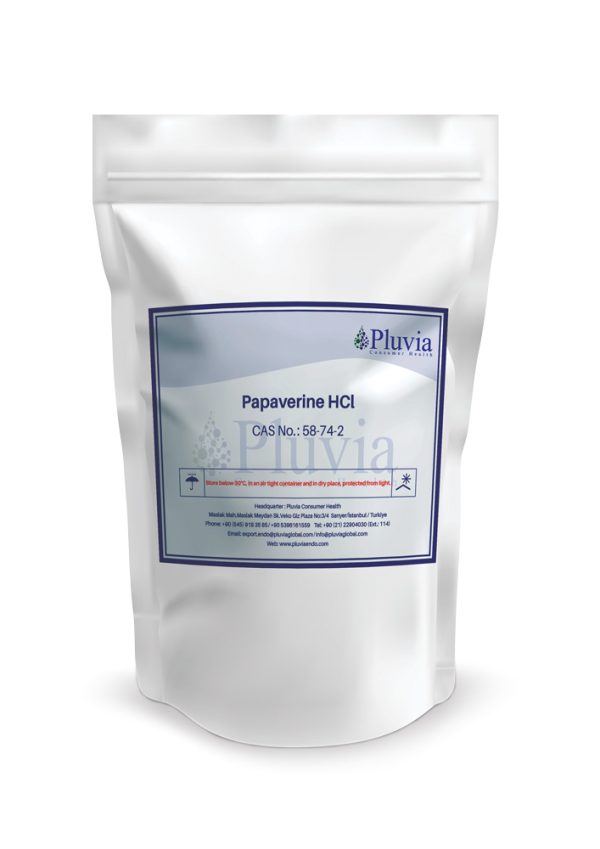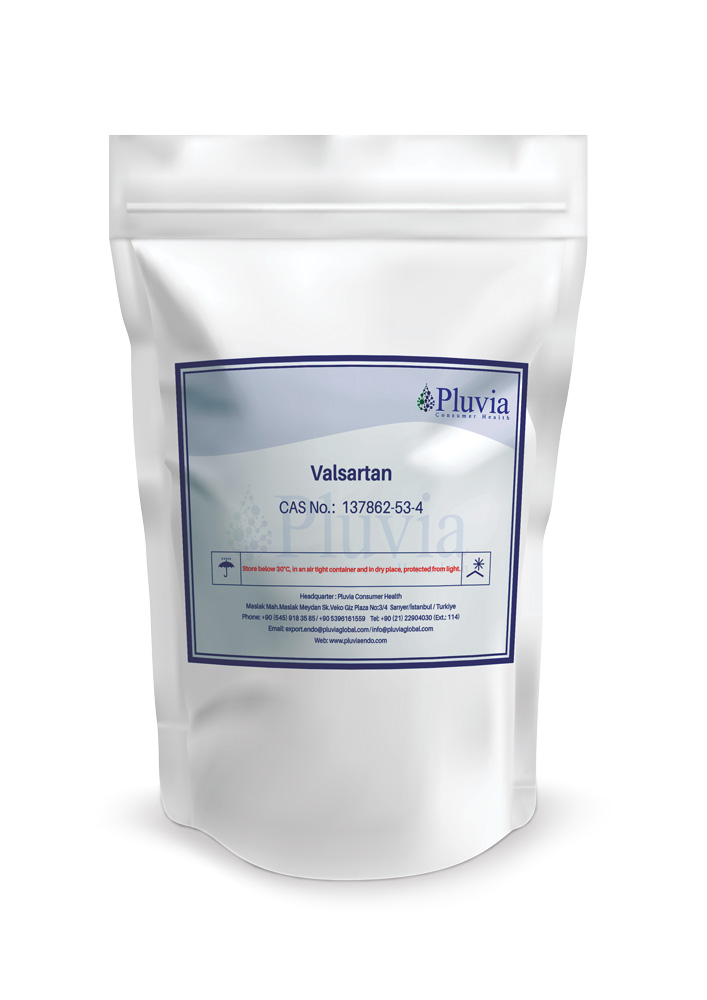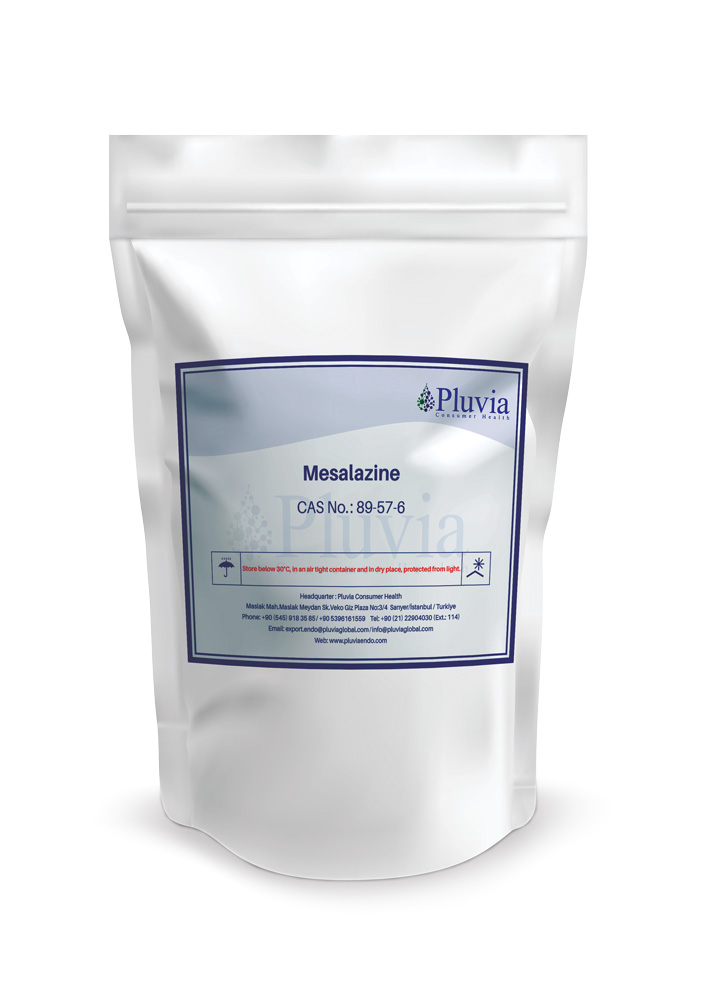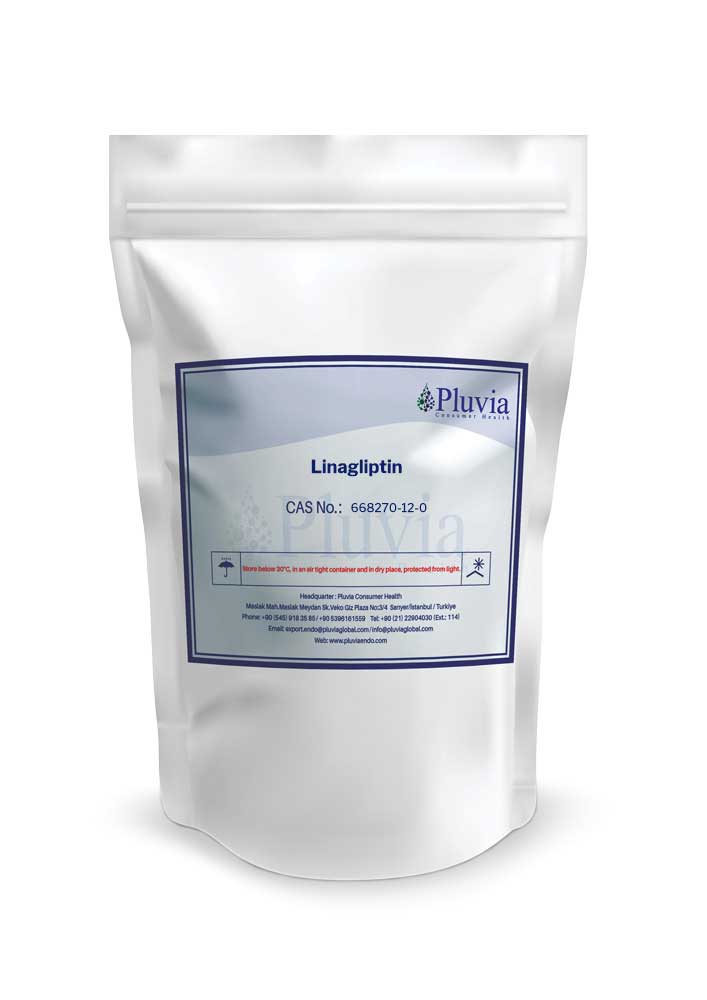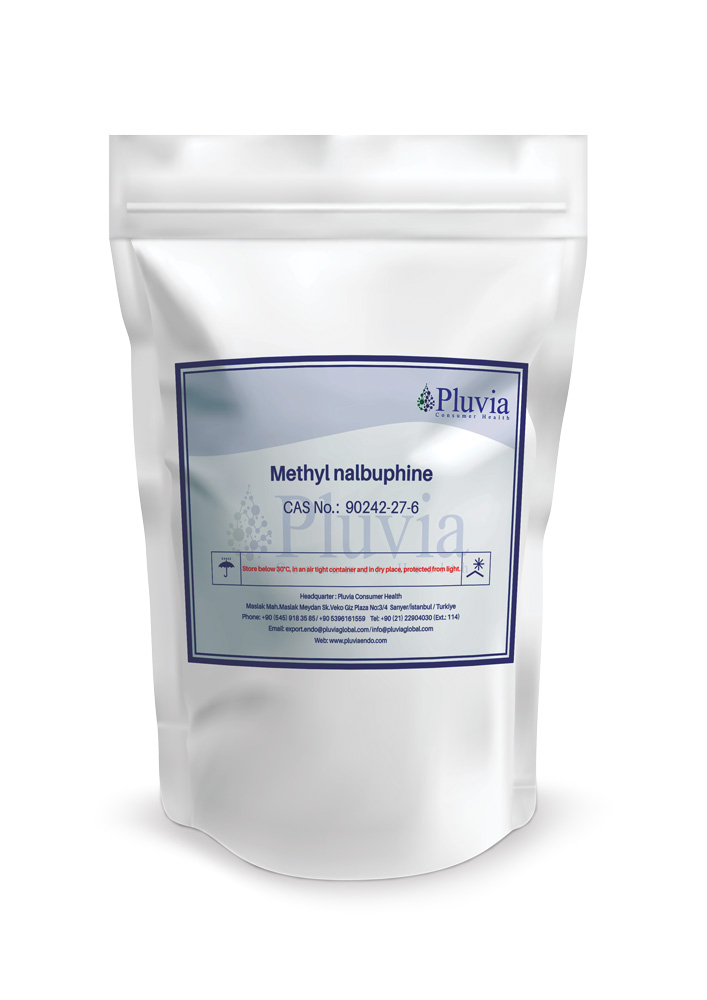Papaverine HCl
Papaverine HCl is a medication that belongs to the class of drugs known as vasodilators. It is derived from the opium poppy plant belongs to Non-Narcotics and works by relaxing and dilating the smooth muscles of blood vessels. Here are some key points about PluviaEndo‘s Papaverine HCl:
Vasodilator Properties: Papaverine acts primarily as a vasodilator, meaning it widens blood vessels. This effect helps to increase blood flow by reducing the constriction of blood vessels.
CAS. No: 58-74-2
Medical Uses
-Angina: Papaverine has historically been used to treat certain types of angina, a condition characterized by chest pain or discomfort due to reduced blood flow to the heart muscle.
-Erectile Dysfunction: It belongs to Non-Narcotic groups and has also been used to treat erectile dysfunction by improving blood flow to the genital area.
Mechanism of Action
Papaverine works by inhibiting phosphodiesterase (PDE), an enzyme that plays a role in regulating blood vessel tone. By blocking PDE, it helps to relax and dilate blood vessels.
Administration
Papaverine is typically administered via injection, either into the muscle or directly into the penis for the treatment of erectile dysfunction.
Side Effects
Like any medication, Papaverine can have side effects. Common side effects may include dizziness, lightheadedness, and flushing. Serious side effects are rare but may include allergic reactions.
It’s important to note that the use of Papaverine and its formulations should be under the guidance of a qualified healthcare professional. Dosage, administration, and suitability for specific conditions can vary, and only a healthcare provider can determine the appropriate use for an individual patient.
Smooth Muscle Relaxation
Papaverine primarily acts on smooth muscles, which are found in the walls of various organs, including blood vessels. By relaxing these muscles, helps to widen the blood vessels, leading to increased blood flow.
Treatment of Intermittent Claudication
In addition to its use in angina and erectile dysfunction, Papaverine has been used in the treatment of intermittent claudication. This condition involves pain or cramping in the legs during physical activity due to insufficient blood flow.
Preoperative Use
Papaverine may be used as a preoperative agent during surgery, particularly in urological procedures. Its ability to relax smooth muscles can be beneficial in certain surgical contexts.
Interaction with Phosphodiesterase (PDE)
The inhibition of phosphodiesterase by Papaverine results in an increase in cyclic adenosine monophosphate (cAMP) levels within cells. Elevated cAMP levels contribute to smooth muscle relaxation.
Duration of Action
The duration of action of it can vary, and its effects may last for several hours. The specific formulation and route of administration can influence the onset and duration of its therapeutic effects.
Individual Response
Individual response to Papaverine may vary, and its use should be tailored to the patient’s medical history, overall health, and specific condition being treated.
Caution and Contraindications
As with any medication, Papaverine has contraindications and potential interactions with other drugs. Patients with a history of certain medical conditions, such as hypotension or certain cardiovascular disorders, may require careful monitoring.
We understand the complexities and challenges you face in the healthcare industry. That’s why we’re dedicated to providing innovative solutions and insightful knowledge to help you achieve your goals.
Your input is crucial in helping us understand your needs and deliver the most relevant support:



